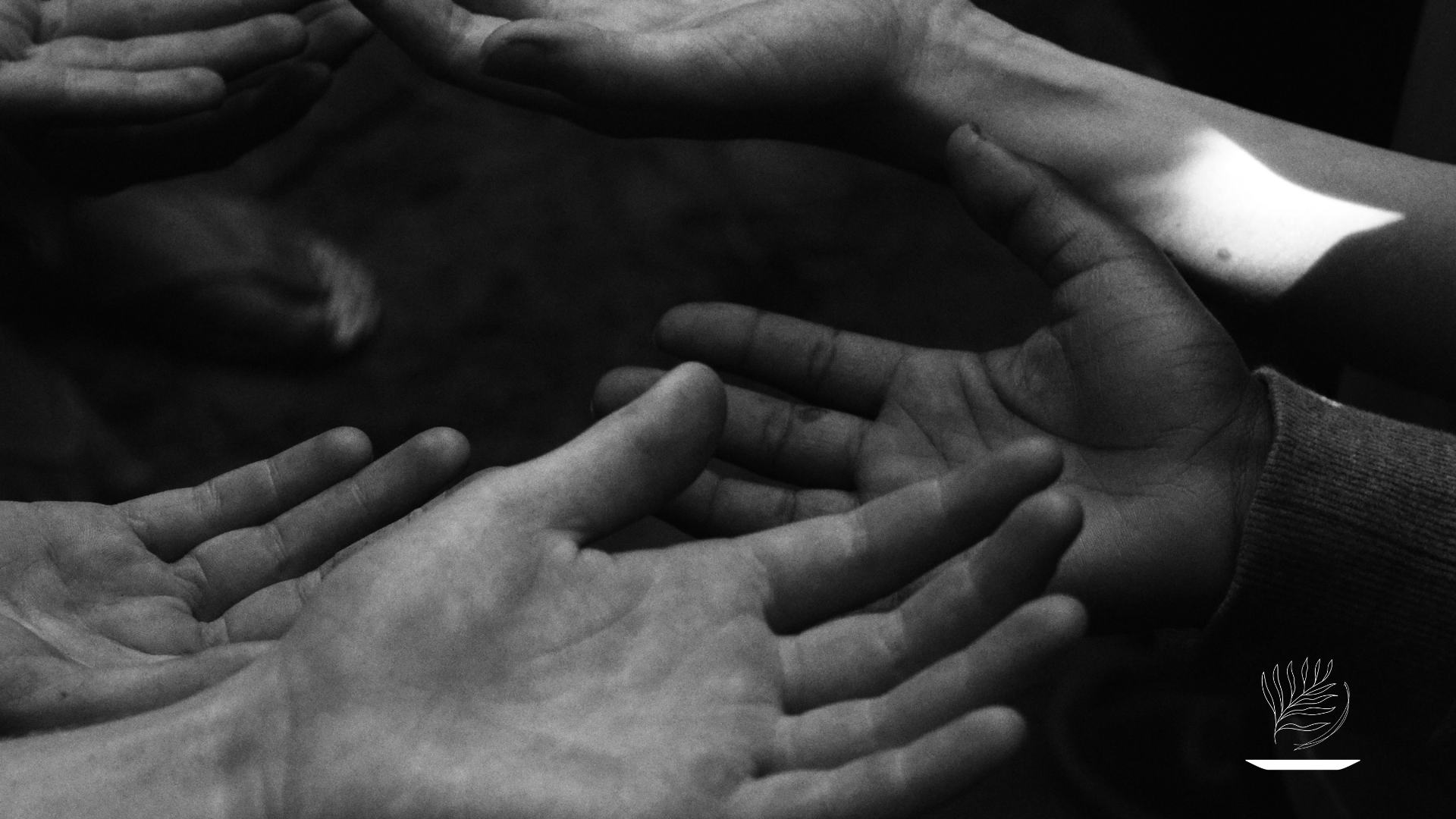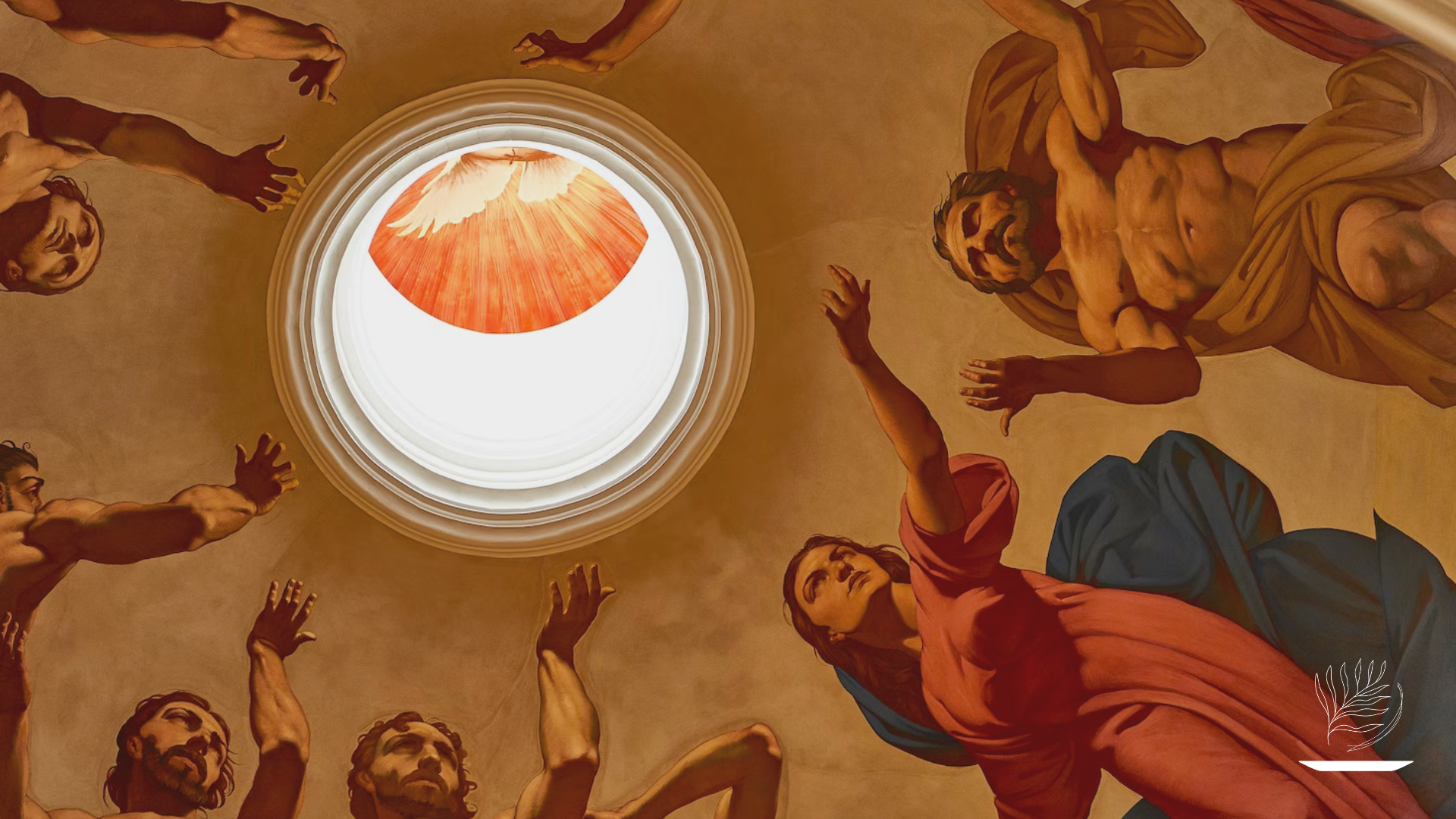

Since 2019, Logos has published short devotional articles daily during Lent: the 40-day period prior to Easter Sunday (this year, February 22-April 6). As Yale’s undergraduate journal of Christian thought, Logos aims to publish a diversity of Christian voices from across campus.
Read our Lent 2023 series below!
April 5, 2023 | Emma Ventresca, BF ‘26
To put it concisely, living a Christian life is difficult. It requires courage, strength, and complete surrender. Sometimes, we fall away from authentic Christian living due to the stifling pressures and anxieties of the world. But when we truly say fiat, “let it be done,” the love of Christ acts as our shield.
April 3, 2023 | Michaela Wang BK ‘25
One of the most perplexing yet ubiquitous terms I’ve encountered is “joy in Christ.” When trying to draw non-Christian friends closer to God, or while comforting a Christian friend through a difficult season, I found myself confused by what I meant with this term––and worse, struggling to attest to this feeling I was promulgating. Have I felt joy in Christ? What is it in the first place? What does my misunderstanding of it reflect about the state of my heart?
April 1, 2023 | Kane Xu MC ‘25
Your suffering may not be the same as my suffering, but we share one hope: Jesus. I am still in the fire, but I have learned a few things that have brought me tremendous victories amidst the darkness.
March 29, 2023 | Tori Cook JE ‘26
To have one heart and one mind as a Christian people seems to mean having our will fully in line with God’s will– perfectly desiring what He desires. Herein lies the difficulty. Changing our actions is far easier than changing our wills and desires.
March 24, 2023 | Blake M (ES 2024)
The ancient city demands much of a watchman. He spends all day or all night with nothing to do but watch: waiting for signals from other cities or the signs of enemy armies. Uneventful weeks and months pass. Yet, in a few key moments, everyone in the city depends on him to be alert. On an ordinary day, he is given little praise; should he doze off and miss the signs of an incoming army, he rightly shoulders all the blame.
March 22, 2023 | K. A. Malandain (Trumbull ‘26)
For there are still, in fact, good fruits that can be reaped from what you might be perceiving as a failure–those fruits being, a knowledge of our fallen nature as humans in the world, and a reminder of the difficulty of being a disciple of Christ. Denying ourselves, taking up our cross, and following the Lord is no easy feat.
March 20, 2023 | Katie Painter TD ‘23
In the Catholic tradition, March 20 marks the Solemnity of St. Joseph, Spouse of the Blessed Virgin Mary. On this day, we commemorate the steadfast father of the child Jesus, the virtuous husband “unwilling to expose [Mary] to shame.”
March 17, 2023 | Teni Asade TC ‘26
He had stood tall, spine cracked straight with pride, the pressure suffocating him. And yet sometimes that pride—that crushing weight of self-reliance—was the only thing that kept him standing at all.
March 15, 2023 | Jonathan Pierre SY ‘25
Lately though, it feels like things have been everything but spiritual. Anxiety has felt more real–oftentimes replacing the peace of the Holy Spirit. A sense of hopelessness has tried to dry up my faith. And a deep feeling of irritability has attempted to replace a love for others.
March 13, 2023 | Marcos Barrios ES ‘24
How often do you think about clouds? Sure, you may notice them. But when was the last time you looked up and pondered them? Did you recognize them as the "wondrous works" of God?
March 10, 2023 | Yoska Guta TD ‘25
During Lent, many Christians commit to times of solitude, fasts, or abstaining from certain foods, drinks, or even practices in an effort to refocus their attention on the Lord. Fasting or abstaining is often associated with discovering deeper intimacy with God—by starving one’s earthly flesh, but building their heavenly dependence in order to grow closer to the Lord. Beyond the physical aspect, it is important to reflect on the grounding principles of our partaking in this millennials-old
March 8, 2023 | Maddie Bartels TC ‘24
How strange that the most humble man on Earth so boldly made demands of God! Moses’ humility is fully submitted, yet still insistent that God reveals himself. He gladly accepts the hidden cleft in the rock but still asks to see God’s face. Perhaps, Moses was humble because he demanded to experience and draw near to God’s glory and was willing to accept any affliction or abasement to do so.
March 6, 2023 | Sharla Moody YC ‘22
The tree remembers, the ax forgets: those
nights You carved me out of my wants and toiled
to make a sapling out of all these bare…
March 3, 2023 | Lily Lawler BK ‘23
Some parts of the Bible can feel so culturally specific to the time they were written that we find ourselves needing to cross-check our understanding with descriptions in study Bibles and other resources. But the beauty of many Psalms is that these are songs that need no context or explanation – they are the purest plea from the soul that people have shared in since King David’s time.
March 1, 2023 | Lukas Bacho SM ‘25
Though the season of Lent brings the drama of wandering the wilderness to the fore of our spiritual lives, the liminal state the desert represents never seems too far off. As I write this, I sit isolated in my dorm room with COVID-19, having taken my health for granted just days ago. Though my lack of symptoms and the low number of cases on campus are signs of how far we’ve come in three years, the to-go boxes piled up by my door and the KN-95 mask on my desk are grim reminders of what we all lived through if we were lucky. Yes, isolation has been a nuisance. But I’d be lying if I said this social fasting hasn’t provided welcome time to decelerate, catch up on work, and take stock of my life—this minor wilderness recalling other wildernesses, from the pandemic and even earlier, right in time for Lent.
February 27, 2023 | Caleb Mangesho BK ‘26
In mourning, “good” meant showing emotion, but not too much. “Good”, irrational as it seemed, meant keeping my naked grief to myself. So I let my sadness settle into an open resentment of God, this savior who left me to suffer alone in the darkest moment of my life, and the people around me who encouraged me to follow Him. I wouldn’t let myself be loved. I came to Yale sure that God and his love would wither away like a rose, pretty in the summer, dead in the winter.
February 24, 2023 | Justin Ferrugia (TD ‘24)
Lent, per its origin, is a time of solitude and fasting. It is meant to mirror Christ’s solitary journey for forty days and forty nights after his baptism. Many Christian traditions including the Catholic Church still require that Ash Wednesday and Good Friday be days of fasting for adults, and many choose to devotionally fast more frequently during Lent and throughout the year. However, in our modern culture, it seems fasting has either become the newest trick to lose weight, or written off as a medieval practice of corporal mortification for the overzealous.
February 22, 2023 | Zeki Tan (PM ‘25)
My recitation of the Daily Office, which is the liturgy of morning and evening prayer in the Anglican Church, invariably begins with these two verses of repentance: a confession of sins and shortcomings, and a plea for forgiveness from God. Repentance occupies a central place in all levels of Christian life, from the Pope’s worldwide exhortations to the private prayers of individuals in their homes, but it is especially important during Lent: a time when Christians commemorate the one whose act of sacrifice justified humans before God and surpassed any human act of penance—Jesus Christ.
February 20, 2023 | Amelia Dilworth (BR ‘23)
I think Lent is like this. Representing the forty days Jesus spent in the desert fasting, praying, and overcoming temptation in the desert, Lent is not a season of self-deprivation or self-punishment. Rather, Lent is a time when we follow Jesus into the desert because nothing in the city can quench our thirst for God.




















April 7, 2023 | Han Choi BF ‘24
As Christians, this is our defining heartcry—to be more like Jesus. The original Greek word Christianos (Christ meaning “the anointed” and tian meaning “little”) literally translates to “little Christs,” or “little anointed ones.” We are meant to be little Jesuses.